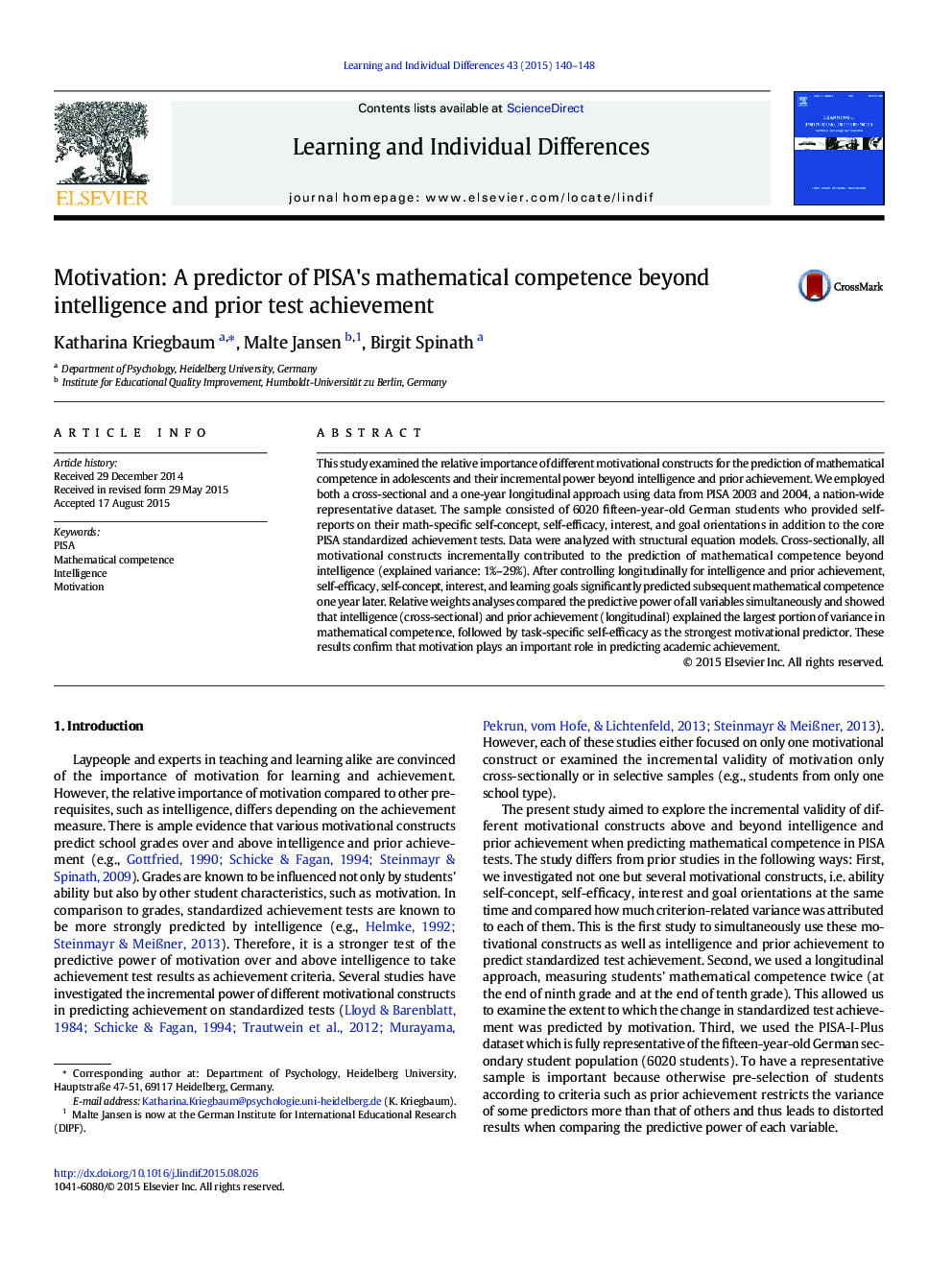| Article ID | Journal | Published Year | Pages | File Type |
|---|---|---|---|---|
| 364661 | Learning and Individual Differences | 2015 | 9 Pages |
•Motivation predicted PISA test achievement over intelligence.•Motivation predicted mathematical competence even over prior achievement.•Cross-sectionally, intelligence was the best predictor of test achievement.•Longitudinally, prior competence was the best predictor of subsequent achievement.•Task-specific self-efficacy was the strongest motivational predictor.
This study examined the relative importance of different motivational constructs for the prediction of mathematical competence in adolescents and their incremental power beyond intelligence and prior achievement. We employed both a cross-sectional and a one-year longitudinal approach using data from PISA 2003 and 2004, a nation-wide representative dataset. The sample consisted of 6020 fifteen-year-old German students who provided self-reports on their math-specific self-concept, self-efficacy, interest, and goal orientations in addition to the core PISA standardized achievement tests. Data were analyzed with structural equation models. Cross-sectionally, all motivational constructs incrementally contributed to the prediction of mathematical competence beyond intelligence (explained variance: 1%–29%). After controlling longitudinally for intelligence and prior achievement, self-efficacy, self-concept, interest, and learning goals significantly predicted subsequent mathematical competence one year later. Relative weights analyses compared the predictive power of all variables simultaneously and showed that intelligence (cross-sectional) and prior achievement (longitudinal) explained the largest portion of variance in mathematical competence, followed by task-specific self-efficacy as the strongest motivational predictor. These results confirm that motivation plays an important role in predicting academic achievement.
